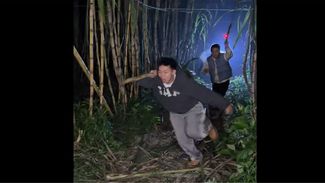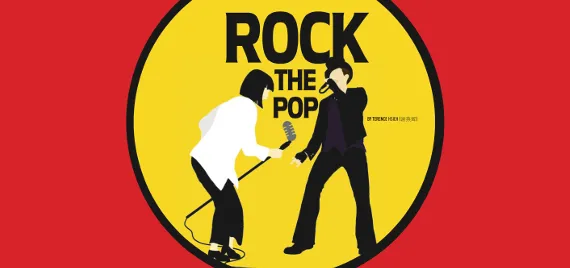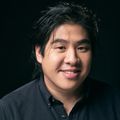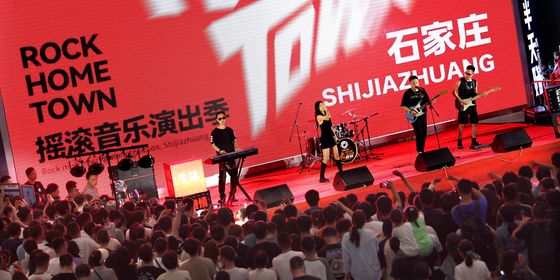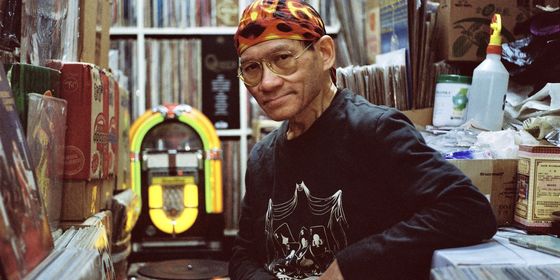How reality TV is changing the Chinese music industry
Welcome to the Hunan Satellite Television station, located in the Xingsha District of Changsha, Hunan Province. It’s filming day. The giant doors of the 1,300-square-meter studio open in the dark, cavernous room, featuring a stage lit up by hundreds of stage lights of varying colors. In the back of the room, 500 audience members, sitting in rows organized by age, await with hushed breath for the next act to begin.
The blaring lights dim and then flash, enhanced by the smoke machine in the back. A woman’s silhouette walks out, her face darkened by the spotlight trained on her from behind. People gasp as they strain to see beyond her darkened frame, backlit by the overhead lights. Amidst all this chaos, Kubert Leung takes his seat at his mobile workstation, a desk piled high with computers, mixers, equipment, and microphones situated stage left of the embedded glowing circle on the shiny black stage that surrounds each singer like a glowing halo. As the music director for Hunan Satellite Television’s hit pop music reality show I Am a Singer (《我是歌手》), Leung is in charge of a 50-something team of musicians and must be able to make instant adjustments according to the needs of the singers. At this particular moment, Taiwanese pop-star Huang Liling, known otherwise by her stage name as A-Lin, is about to begin her tune. The lights bring her face into view; the crowd roars in approval.
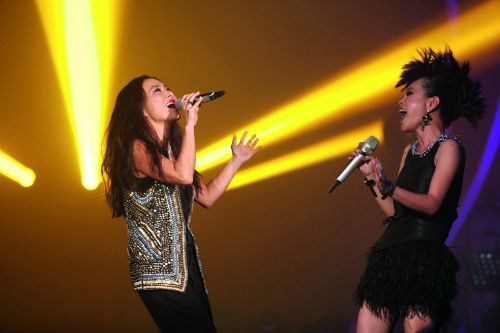
Finalists perform in the final round of I Am a Singer by Hunan Satellite Television
Leung’s band is formed from a surprisingly small but notable collection of musicians who make up the backbone of the pop industry in China. Leung, a Hong Kong native, is both a songwriter, producer, and performer who has produced and written for the likes of Faye Wong and many others in the Canto and Mandopop industry. Among the various band members, with names like Eason Chan, Jay Chow, Candy Lo, and Cui Jian, regularly come up in conversation as old friends and familiar faces.
A-Lin turns to send Leung a short nod—she’s ready to go. Kubert’s thumb hits the spacebar of the Macbook that serves as the central nervous system of this band, initiating the click track that keeps everyone together; beside him, pony-tailed concert master Jin Haiyin raises his bow in anticipation as the first notes of piano introduction from keyboardist Liu Zhuo’s electric rig soar through everyone’s in-ear monitors. The band strikes, the room reverberates with the power of drummer Hao Jilun’s amplified kick, and guitarist Tommy Chan’s angry open-A power chord. A-Lin raises the microphone to her lips. It’s on.
As an industry once considered stagnant, rife with plagiarism and piracy, China’s music reality television programming is breathing new life into pop music, creating an image that is both fresh and marketable.
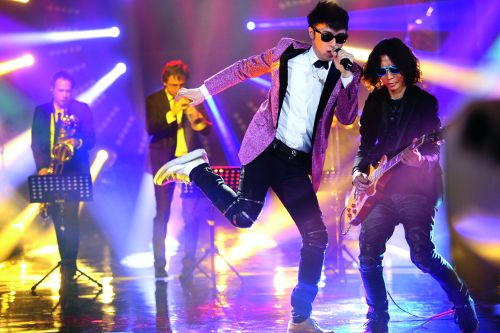
Hong Kong singer Leo Ku in the third season of I Am a Singer
The idea behind I Am a Singer is remarkably simple: pit former has-beens against each other to see who can stay afloat while allowing the audience to vote for their top favorites, forcing each singer to put out their best every week. The current season features Chinese musicians from many different nationalities, including Singapore and Malaysia. While seven initial contestants begin in episode one, others take their place as they are eliminated. Season three initially featured an ethnically diverse crew of seven singers, including Tibetan singer Han Hong, Sun Nan, Hong Kong crooner Leo Ku, Singaporean national treasure Kit Chan, Huang Liling from Taiwan, R&B artist Tiger Anson Hu, and pop idol Jane Zhang.
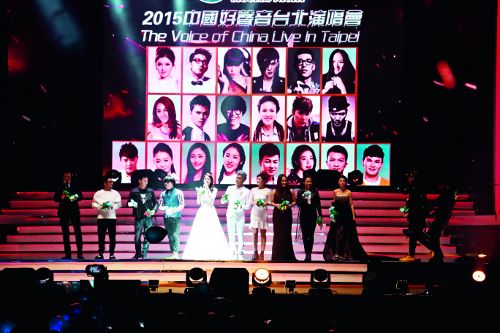
Finalists of The Voice of China perform a gig in the Taipei Areana
I Am a Singer is just one of a breed of shows that are revitalizing China’s music industry, and international soft power game. CCTV-3’s Sing My Song (《中国好歌 曲》) consists of three phases: an audition phase, a battle phase, and a final production phase, where producers and songwriters are teamed up to create original music. Producers choose contestant songwriters through a blind audition process, where the producer must make an instant decision to pass on or take a song. If two or more producers choose the same song, the singer- songwriter has the final choice of producer. Zhejiang Satellite Television’s The Voice of China (《中国好声音》) features judges who pick teams of contestants who face off against each other through performances and have featured such high profile judges as Wang Feng, A-Mei, Andy Lao and Yang Kun. It has been reported that the latest season will also feature Jay Chou.
The unprecedented growth of Chinese pop culture has roots in other Asian nations…
“Rock the Pop” is a feature story from our latest issue, “Startup Kingdom”. To continue reading, become a subscriber and receive the full magazine. Alternatively, you can purchase the digital version from the iTunes Store.


